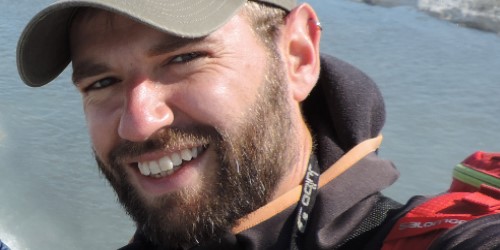Modelling the bio-cryosphere; how do glacier algal blooms contribute to the global carbon cycle?
About the project or challenge area
Blooms of extremophile ‘glacier algae’ lower the bare ice albedo of the Greenland Ice Sheet (GrIS), amplifying summer energy absorption at the ice surface and enhancing meltwater runoff from the largest cryospheric contributor to contemporary sea level rise. As blooms progress during summer melt seasons, the high net productivity of glacier algae forces the supraglacial system toward net autotrophy and drives substantial accumulation of autochthonous organic carbon within the weathered surface ice. Using the first numerical model of glacier algal blooms recently developed by Dr Williamson, this project will investigate the large-scale role of Greenland Ice Sheet glacier algal blooms in the global carbon cycle. Modelling experiments will be performe¬d to ascertain the potential contributions of ice sheet wide blooms to carbon sequestration and the fate of this carbon reservoir under various simulations.
Why choose this project?
You will have the opportunity to work at the forefront of research into the importance of key cryospheric environments for global carbon cycles, learning key skills in numerical modeling and developing your knowledge on supraglacial ecology.
About you
You will have an interest in polar microbiology and some numerical, GIS and modelling skills (preferably in R), though training will be provided where necessary.
How to apply
All students can apply using the button below, following the Admissions Statement (PDF, 188kB). Please note that this is an advertised project, which means you only have to complete Section A of the Research Statement.
This project is not funded, for further details please use this link.
Before applying, we recommend getting in touch with the project's supervisors. If you are interested in this project and would like to learn more about the research you will be undertaking, please use the contact details on this page.
 Supervisor
Supervisor
Your supervisor for this project will be Chris Williamson, Lecturer in Polar Microbiology in the School of Geographical Sciences. You can contact him at +44 (0) 117 42 82366 or email c.williamson@bristol.ac.uk.
 Supervisor
Supervisor
Your co-supervisor for this project will be Dr Oliver Andrews in the School of Geographical Sciences. You can contact him at +44 (0) 117 331 6789 or email oliver.andrews@bristol.ac.uk.
Find out more about your prospective research community
The Environmental Change theme is a vibrant community of researchers who integrate expertise across multiple disciplines to provide the evidence base and solutions to tackle the world's most pressing environmental challenges. Find out more about the Environmental Change research theme.